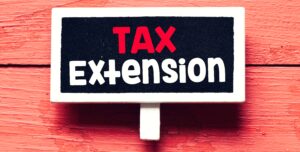Sales Tax Deduction Option, State and Local
[vc_row][vc_column][vc_column_text]
Sales Tax Deduction Option, State and Local
The Tax Relief and Health Care Act of 2006 extended the election to deduct state and local general sales taxes for 2006. The act was enacted after Schedule A (Form 1040), Itemized Deductions, and its instructions were printed. Because we were not able to include the instructions for figuring the deduction in the Schedule A instructions, we are providing this publication to help you figure this deduction.
You can elect to deduct state and local general sales taxes instead of state and local income taxes as a deduction on Schedule A. You cannot deduct both. To figure your deduction, you can use either:
- Your actual expenses, or
- The optional sales tax tables plus the general sales taxes paid on certain specified items.
IRS Publication 600, Optional State Sales Tax Tables, helps taxpayers determine their sales tax deduction amount in lieu of saving their receipts throughout the year. Taxpayers use their income level and number of exemptions to find the sales tax amount for their state. The table instructions explain how to add an amount for local sales taxes if appropriate.
Taxpayers also may add to the table amount any sales taxes paid on:
- A motor vehicle, but only up to the amount of tax paid at the general sales tax rate; and
- An aircraft, boat, home (including mobile or prefabricated), or home building materials, if the tax rate is the same as the general sales tax rate.
For example, the State of Washington has a motor vehicle sales tax of 0.3 percent in addition to the state and local sales tax. A Washington state resident who purchased a new car could add the tax paid at the general sales tax rate to the table amount, but not the 0.3 percent motor vehicle sales tax paid.
Taxpayers will claim the deduction on line 5 of Schedule A, checking a box to indicate whether the amount represents sales tax or income tax.
While this deduction will mainly benefit taxpayers with a state or local sales tax but no income tax — in Alaska, Florida, Nevada, South Dakota, Texas, Washington and Wyoming — it may give a larger deduction to any taxpayer who paid more in sales taxes than income taxes. For example, you may have bought a new car, boosting your sales tax total, or claimed tax credits, lowering your state income tax.[/vc_column_text][/vc_column][/vc_row]
Business Valuation Experience
Business Valuation Experience Valuation Services Valuation Process Sample Report Glossary of Terms The Business Valuations group at Greenstein Rogoff Olsen & Co provides the expertise of a large big four firm with the hands on individualized service of a small local firm. We are committed to provide our clients and their advisors with the highest…
Stock Option
Stock Option Valuation Services Valuation Process Valuation Experience Sample Report Glossary of Terms It is extremely important in today’s regulatory environment that stock options are managed correctly, which includes all the various valuation issues that surround options. Because of this, the valuation analyst must have a working knowledge of stock option plans, in addition…
IRS Extension 409A
IRS Extension 409A The IRS has issued Notice 2007-86 which delay the effective date of the Proposed Regs under Section 409A until January 1, 2009 and by generally extending earlier transitional relief. This provides taxpayers additional transitional relief to come into compliance with forthcoming final regs. Options granted before 2009 won’t be considered as violating…
ESOP Valuation Issues
ESOP Valuation Issues Q&A (Employee Stock Ownership Plan) Valuation Services Valuation Process Valuation Experience Sample Report Glossary of Terms ESOPs have become an effective tool in corporate finance and tax planning. Not only do they provide retirement benefits and incentives to employees but an ESOP can provide unique ways to transition company management in tax…



